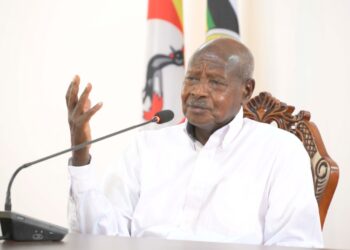The Ministry of Health and World Health Organisation (WHO) have confirmed that Uganda is now free from Ebola.
In a joint statement issued on Friday, Health Minister Dr Jane Ruth Aceng and WHO representative, Dr Yonas Tegegn Woldmariam said there has not been any new case of Ebola disease reported in country since the previous deaths in Kasese district last month.
The statement revealed that on July 4, 2019, all people who directly and indirectly came into contact with confirmed Ebola disease Virus patients completed their mandatory 21 days of follow-up without developing signs and symptoms of the disease.
“Currently there are no people under follow-up which means the Ebola transmission in Case district has been effectively interrupted by the country’s disease response mechanisms,” read the statement.
In reference to the International Health Regulations(IHR) 2005, movements of people from one place to another within the country and between countries is not restricted during the Ebola outbreaks, therefore the Ministry of Health also has clarified that Uganda is safe and all national and international travelers are free to move to and within the country.
However, due to an increasing number of confirmed cases in DRC, the Ministry alluded that Uganda remains on high alert and all travelers have been advised to observe all the Ebola Virus Disease prevention measures as advised by health authorities.
“We affirm that all places of economic and social interaction in Uganda such as national parks and tourists sites are open and accessible to the public and people are free to visit any place.”
In order to maintain the Ebola outbreaks outside Uganda, the Ministry also outlined two measures that will help to strengthen efforts to detect any possible importation of the Ebola virus into the country and these include;
All travelers from Democratic Republic of Congo (DRC) are being screened at the health desk at Entebbe International Airport and at other border entry points for Ebola signs and symptoms. At the airport, the screening targets all passengers who have a history of travel of not less than 21 days to the DRC while at the border entry point all travelers are screened.
The second measure is that at the airport, passengers are required to complete a screening form an information leaflet about Ebola and contacts numbers of surveillance officers are given not all non-symptomatic passengers. A private medical Centre in the airport has been equipped to provide counselling and clinical screening of all suspects, and also a standby full-time ambulance with appropriates protective gear has been provided by the Civil Aviation Authority (CAA).
Do you have a story in your community or an opinion to share with us: Email us at editorial@watchdoguganda.com











